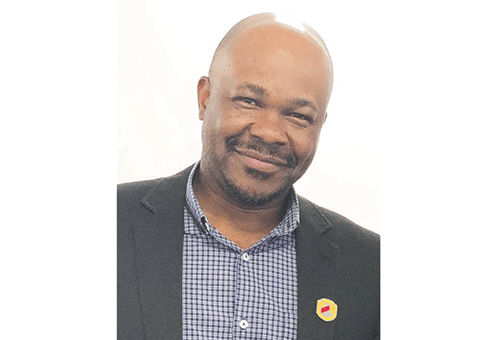Worldwide, universities with vision are increasing their efforts to make local impacts and shape the global development agendas by directly contributing to societal development. Societal development entails progress in the well-being of people in societies. Generating and using appropriate knowledge on decisions and procedures, governing land access (land governance) is mandatory for achieving developmental results. And universities with land-focused departments have a special responsibility in land governance through their teaching, research, networking, and community services. The Namibia University of Science and Technology (NUST), through its Department of Land and Property Studies (DLPS), has grown its reputation at doing this.
Recently I chatted with a professor in land governance on the importance of land in the development of African societies. She said to me, “African universities that are struggling to make local impacts or shape the global agenda on land should be asking themselves, what would NUST do?” When I asked why she said this. Her response was, “…because NUST consistently is doing things right in the land governance education?” Her use of “consistently” is possibly somewhat a stretch. Still, it accurately captures NUST’s emerging leadership in land governance education. It is essential that everyone knows more about NUST’s role in land governance—nationally, continentally, and globally—because NUST (through its DLPS) has emerged as a key player in land governance education and research.
NUST’s DLPS offers programmes in land administration and property studies. Land administration involves generating and safeguarding land data and information, land records and communications, and decision networks across the public and private sectors for societal development. Property studies hinge on the socioeconomic and financial appraisal and management of land, buildings, and facilities. Land administration and property studies are central to national land reforms, policies, and development.
In addition to its learning and teaching responsibilities, NUST has an Integrated Land Management Institute that coordinates and promotes outreach on “land, livelihoods and housing” issues in Namibia. Furthermore, the DLPS coordinates a research group where new graduates are mentored (through paid employment) to kickstart their academic/research careers. This mentorship involves skills development in coordinating research, writing publications, and networking within the global land governance community.
NUST is recognised by the African Union—through its Network of Excellence on Land Governance or NELGA initiative—as the centre of excellence in land governance education in Southern Africa and one of the only six NELGA centres in Africa. NELGA is a partnership of leading African universities and research institutions with proven leadership in education, training, and research on land governance. NUST, as the centre of NELGA, was officially launched in 2018. Since then, NUST has engaged in various academic collaborative works that impact the development of land governance education in Africa. It has supported curriculum review activities in other Southern African universities. It has also facilitated academic exchanges between partner institutions in Africa and Europe. Its DLPS has developed a research strategy for its internal operations and a research and capacity development strategy for Southern Africa. It is currently working on a Gender Strategy for land governance in Southern Africa. NUST is the only African university in the Global Land Tool Network (GLTN). The GLTN is a dynamic and multisectoral alliance of more than 80 international partners committed to increasing access to land and tenure security for all. NUST co-leads (together with the University of East London) the research and training section of the GLTN. It uses its membership and leadership in the GLTN to influence land-related global agendas positively. In 2021 alone, NUST shaped the international discourse on land by producing two globally endorsed guidelines for improving the living conditions of people in all developing countries around the world. NUST conceived and produced a framework on urban-rural land linkages (in collaboration with the International Federation of Surveyors and UN-Habitat) and a practical guide for land use planning (in partnership with the UN-Habitat) respectively.
The International Federation of Surveyors, established in 1878, is a global organization for surveying and related land disciplines. It consists of 106 member associations from 88 countries. The UN-Habitat was established in 1978 to promote socially and environmentally sustainable towns and cities to provide adequate shelter for everyone worldwide. The FIG and UN-Habitat are only two of the more than 80 key partner institutions NUST works with to shape the state of land governance worldwide through the GLTN.
People must be critical concerning what they read or hear about university rankings. No university is the best in all departments. Being recognised or one of the best is not what makes a university great. That is only one part of a whole. As my professor friend alluded in the earlier-mentioned conversation, “making local impacts and shaping the global agenda…” are what should matter. NUST, in Namibia and beyond, functions as an arena for society-focused land governance education. It is a recognized hub for land governance by the Africa Union. The tenure responsive land-use planning framework co-produced by NUST land scientists is globally endorsed by the UN-Habitat and the German Development Agency. The concept is being piloted in communities in the Democratic Republic of Congo, Laos, Namibia, Philippines, and Uganda. This is part of what makes NUST the leader in land governance education. Its activities go beyond teaching and research to make societal development in communities worldwide. At NUST, knowledge that cannot lead to social impact is no knowledge.


